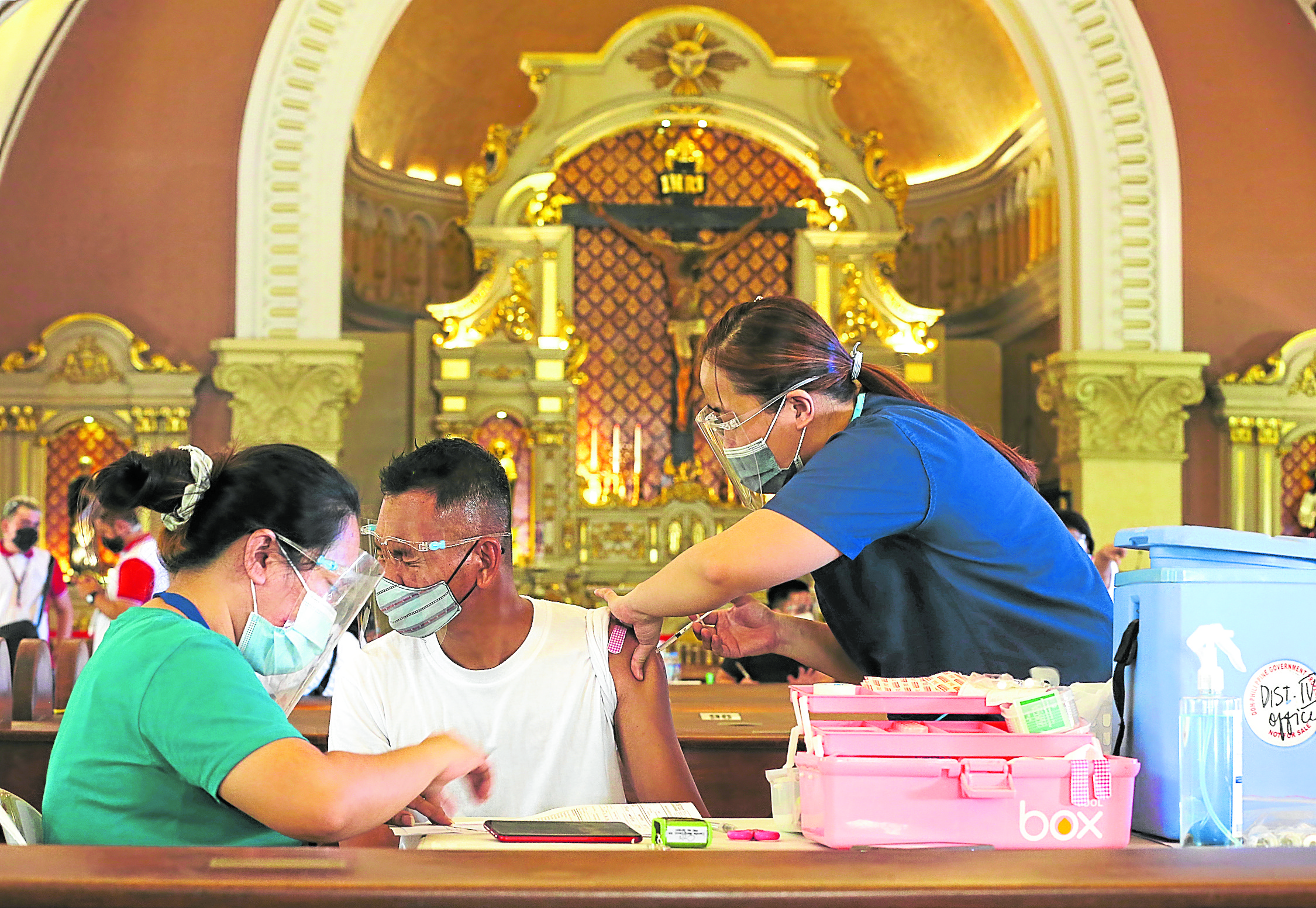
(FILE) The Sacred Heart of Jesus Parish Shrine in Kamuning, Quezon City, has been tapped as one of the vaccination centers in Metro Manila’s most populous city as the government seeks safe, spacious areas to speed up the country’s vaccine rollout.—NIÑO JESUS ORBETA
MANILA, Philippines — Respect for human rights must be at the forefront of the fight against the COVID-19 pandemic, more so that the government is now exploring the use of a ‘brand agnostic’ system of vaccine distribution, the Commission on Human Rights (CHR) said.
The CHR said that while the Department of Health (DOH), in a statement said it is reviewing the said proposal, it must be understood that human rights should never be compromised in dealing with the health crisis.
The CHR issued the statement after the government said it would no longer disclose vaccine brands to be used in vaccination sites to prevent brand preference. Surveys have shown that the vaccine made by Pfizer is much preferred by Filipinos.
READ: ‘Brand agnostic’ vaccination eyed after big Pfizer crowd
READ: Crowds at Pfizer vaccination sites possible ‘superspreaders’ – health reform advocate
“[CHR] welcomes the statement of the [DOH] that recognizes a person’s inviolable right to informed consent when receiving Covid-19 vaccines. This position stresses the four elements of availability, accessibility, acceptability, and quality (also known as the AAAQ Framework) in the enjoyment of the right to health by all,” CHR spokesperson Jacqueline de Guia said.
“Time and again we stress that, in ending this pandemic, respect and promotion of human rights must always be at the center of all government actions. Human rights are not to be compromised, but should rather be prioritized. Ending this pandemic, after all, is in pursuit of the people’s right to health and a safe and healthy environment,” De Guia added.
On Friday, the DOH said it was open to reviewing the brand-agnostic policy, which some fear may violate the people’s right to consent. The DOH clarified in the same interview that people will still be informed on what vaccine brand will be used.
READ: DOH open to reviewing COVID-19 vaccination ‘brand agnostic’ policy
The CHR also stressed that instead of not revealing the brand of the vaccine to be used, the government must resolve the issue of low vaccine confidence.
“At the same time, we urge the government to further push its efforts in addressing the reasons fueling vaccine hesitancy, including deadly misconceptions, which discourage the public from getting vaccinated,” De Guia noted.
De Guia also cited a recent Social Weather Stations (SWS) survey which said that only 32 percent of their 1,200 respondents were willing to have themselves vaccinated against COVID-19.
While 51 percent of the respondents expressed confidence in the national government’s vaccination program, only 58 percent said they were willing to be vaccinated.
READ: SWS: Just half of Filipinos trust gov’t COVID vaccination program
Earlier, the Integrated Bar of the Philippines reminded the government that the “brand agnostic” policy on vaccines, should not violate the public’s right to informed consent.
“It does not and should not take away the right to INFORMED CONSENT as the citizen must be individually appraised before vaccination about the brand and other details to enable him/her to intelligently consent to OR decline the offered vaccination. The Department of Health has publicly recognized the right to informed consent,” IBP national president Domingo Cayosa said.